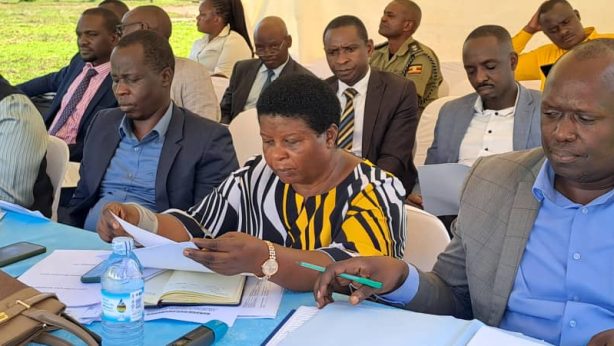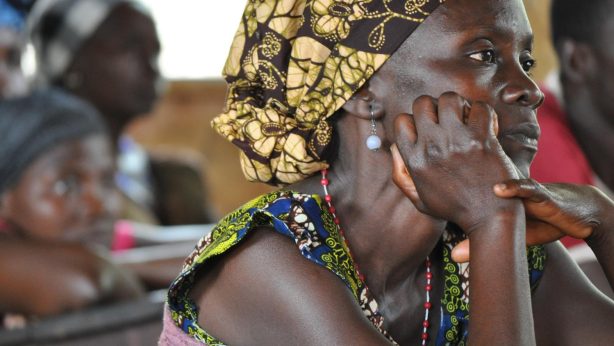Citizens speak out at Bufunjjo Baraza, urging leaders to take action on roads and education
On Thursday, June 26, the people of Bufunjjo Sub-county in Kyenjojo District gathered at their local headquarters for a Baraza. At this public meeting, citizens could openly share their concerns and call for improved services. Organised by Human Rights and Democracy Link Africa (RIDE-AFRICA) and Twaweza East Africa, in collaboration with the Office of the Resident District Commissioner (RDC), the event created a much-needed space for dialogue between citizens and local leaders.
Over 350 people attended, including men, women, local government officials, councillors, journalists, change agents and members of the Citizens’ Follow-Up Committees. The main issues raised were familiar but pressing: poor road conditions and a shortage of teachers in public schools. Residents named several roads in dire need of repair, including Karambi to Kahombo, Katoma to Kikazi to Bukongwa, and bridges at Kifuka to Kambo and Rwenjaza to Bukongwa. These roads are lifelines, helping farmers reach markets, children get to school, and patients access health centres. When they break down, the community struggles.
One resident, Michael Christmas, inquired about the Mugaju River crossing with the sub-county chief. He explained that children often miss school when the river floods, and there’s simply no safe way to cross. Another resident, Byomugyisha Benon from Kataraza, asked about the road from Kifuka to Batalika, which becomes completely unusable during heavy rains.
In response, LCIII Chairperson Kobusheshe Pulicalipo stated that he is working to install culverts along critical stretches of road, including at the Mugaju River and on the Kahombo to Rwenjaza route. He also mentioned ongoing talks with Katara Sugar Factory, which frequently uses the road, to help with repairs.
The second big concern was education. Parents spoke emotionally about overcrowded classrooms and the shortage of teachers, which is making it harder for children to learn. Beatrace Komuhangi added that bad roads are putting the lives of expectant mothers at risk. Some women don’t reach the hospital in time because the roads are too rough to travel quickly. Another speaker, Bamanya Emmanuel, a change agent, pointed out that teacher-pupil relationships are suffering due to stress and overcrowding in schools.
Deputy District Chairperson Grace Tumuranzye acknowledged the problem. She explained that the district receives only one billion Ugandan shillings a year from the road fund, far from enough to meet all the needs. She encouraged residents to keep supporting communal work, known locally as Bulungi Bwansi, while the government works to improve road funding.
Other leaders also noted that progress has been slow due to a lack of road construction equipment, such as tractors and excavators. Still, they promised that funds for road maintenance will be included in the next district budget.
Later in the Baraza, attention turned back to education. Ms. Stella Kabanyoro, District Inspector of Schools for Mwenge South, stated that each pupil receives only 20,000 shillings per year from the government, which is insufficient to run a school. She urged parents to work with school leadership and keep paying PTA fees so that schools can hire more teachers where needed.
There was a moment of hope, though. At Rwenjaza Primary School, parents and staff had written to the Inspector of Schools requesting more teachers and classrooms. The response? Two government teachers were assigned, and four more were hired with PTA funds. The community even launched a fundraiser to build a new classroom block. The walls are now up, and roofing is next.
Still, challenges persist. The headteacher explained that Primary Six pupils are currently learning in a nearby Catholic church in the mornings and only move to the main school building after the Primary Two classes are finished for the day. He called on the sub-county to help finish the new classroom block so that all pupils can learn in a proper space.
In her closing remarks, the Resident District Commissioner of Kyenjojo, Ms. Ayesiga Sarah Julian, assured the community that the government is committed to improving education and ensuring that every public school has sufficient teachers and enhanced services.
This post was written by Nelson Bahati, Consultant, Advocacy and Engagement, Twaweza Uganda.


